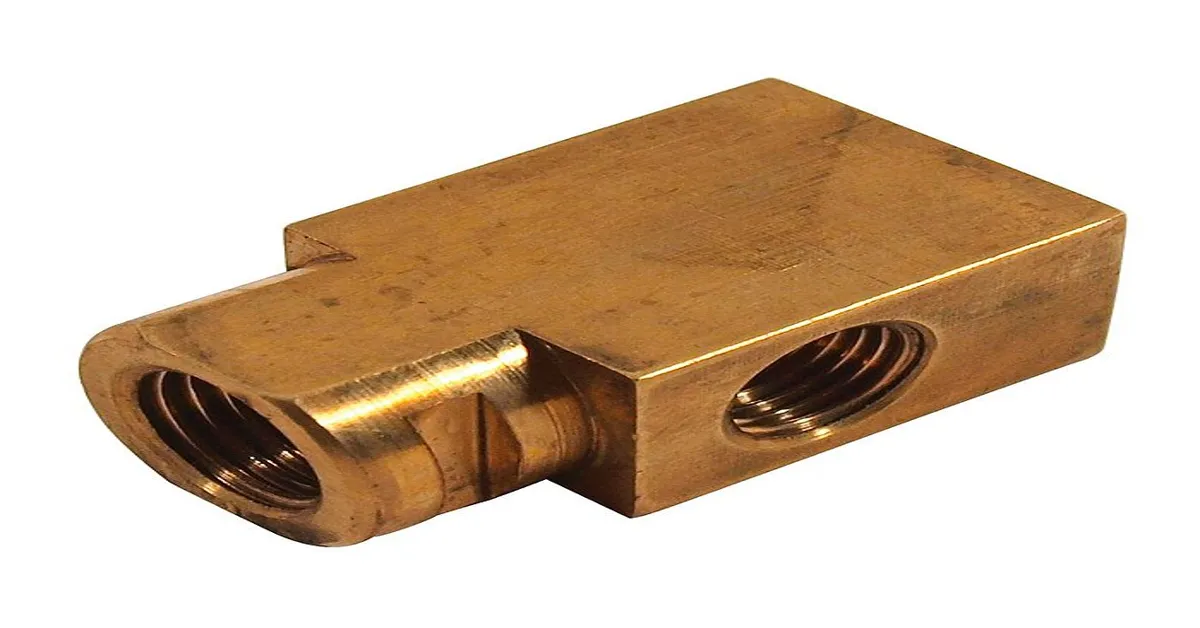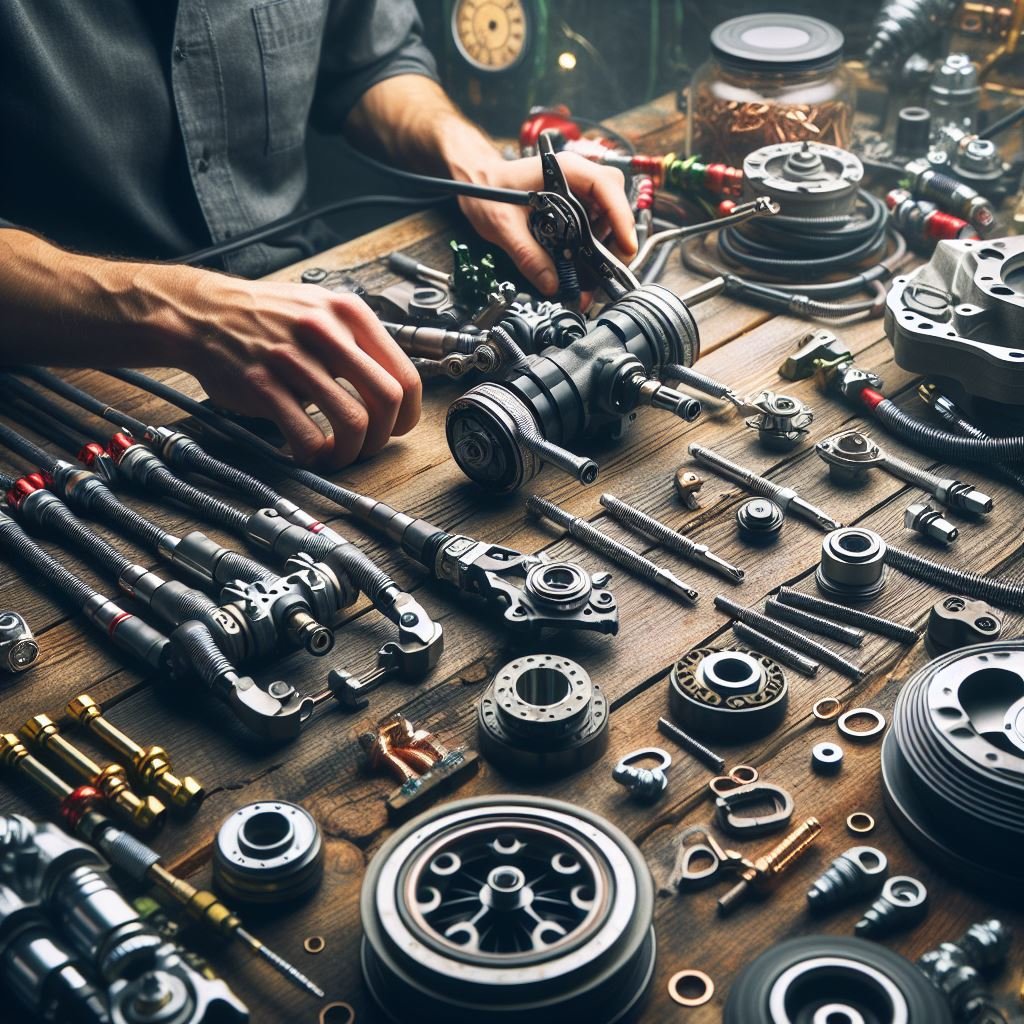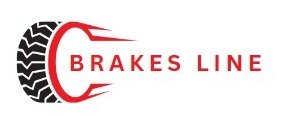As you’re driving down the highway, you suddenly notice a strange noise coming from your car. You pull over to the side of the road and pop the hood, only to find that one of your brake lines has burst. Panic sets in as you realize the danger you were just in, and you start to wonder, what exactly is a brake line block and how can you prevent it? Brake line blocks are a common issue that can lead to serious accidents if not addressed promptly.
They are caused by a buildup of debris or corrosion in the brake lines, which can restrict the flow of brake fluid and cause loss of braking power. This is a crucial safety concern that every driver should be aware of. But fear not; in this blog post, we will delve deeper into the world of brake line blocks and provide you with all the necessary information to prevent them from happening.
Key Takeaway
- Brake line blocks are a common issue caused by debris or corrosion in the brake lines.
- They can lead to loss of braking power and pose a serious safety concern for drivers.
- Understanding the anatomy of a brake line and learning how to maintain it can help prevent brake line blocks.
- Being stranded on the side of the road due to a brake line block can have a significant impact on daily life.
- By following expert tips and advice, drivers can avoid brake line blocks and ensure their brakes are functioning properly.
What is a Brake Line Block?
When it comes to maintaining your vehicle, one crucial component to pay attention to is the brake line block. This small but mighty part plays a significant role in your car’s braking system, and without it, you may find yourself in a dangerous situation on the road. So, what exactly is a brake line block, and what does it do? The brake line block is a small metal block that connects the brake lines to the master cylinder.
It essentially acts as a junction, splitting the brake fluid from the master cylinder into the individual brake lines for each wheel. This allows for even distribution of pressure to the brakes, ensuring that your car comes to a smooth and controlled stop. But why is it important? Well, without a functioning brake line block, your car’s brakes may not work properly.
This can lead to uneven braking, loss of control, and, ultimately, accidents. It’s essential to regularly check and maintain your brake line block to ensure it is in good condition and functioning correctly. So, how can you tell if your brake line block needs attention? Look out for signs such as a spongy brake pedal, uneven braking, or leaks in the brake lines.
If you notice any of these, it’s crucial to have your brake line block inspected and replaced if necessary. In conclusion, the brake line block may be a small part, but it plays a significant role in keeping you safe on the road. Be sure to regularly check and maintain this crucial component of your car’s braking system to ensure it is functioning correctly. After all, a well-maintained brake line block could save you from a potential accident.
brake line block
| Installed near the master cylinder | Important Information | Details |
|---|---|---|
| Material | The material used for the brake line block is crucial in determining its durability and performance. It is typically made of steel, aluminum, or brass. | Steel, aluminum, or brass |
| Size | The size of the brake line block may vary depending on the vehicle it is intended for. It is important to choose the right size to ensure proper fit and functionality. | Varies depending on vehicle |
| Function | The brake line block is responsible for regulating the flow of brake fluid to the different brake lines in a vehicle. It helps maintain proper pressure and balance for efficient braking. | Regulates brake fluid flow |
| Installation | The brake line block is typically installed near the master cylinder and is connected to the brake lines. It is important to follow proper installation procedures to ensure safety and functionality. | Varies depending on the vehicle |
| Maintenance | Regular maintenance of the brake line block is crucial in ensuring its proper function. This includes checking for leaks, cracks, and corrosion, and replacing it if necessary. | Check for leaks, cracks, and corrosion |
| Compatibility | It is important to ensure that the brake line block is compatible with the specific vehicle make and model. Using an incompatible brake line block can lead to brake failure and accidents. | Compatible with specific vehicle |

Signs of a Faulty Brake Line Block
The brake line block is a crucial component in your vehicle’s braking system. It is responsible for controlling the flow of brake fluid to the wheels, ensuring that your car comes to a smooth and safe stop. This small but mighty part plays a big role in your vehicle’s overall performance and safety.
The brake line block is typically made of metal and is located near the master cylinder. It is connected to the brake lines that run to each wheel. When you press the brake pedal, the master cylinder sends pressurized brake fluid through the brake lines to the brake line block.
The block then distributes the fluid evenly to each wheel, allowing the brakes to engage and slow down the vehicle. Without a functioning brake line block, your brakes would not work properly. It is important to regularly check and maintain this component to ensure your safety on the road.
Over time, the brake line block can become corroded or damaged, leading to leaks or blockages in the brake lines. This can cause your brakes to fail or become less responsive, putting you and others on the road at risk. If you notice any issues with your brakes, such as a spongy or unresponsive pedal, it is important to get your brake line block checked by a professional mechanic.
They will be able to diagnose the issue and make any necessary repairs or replacements. In conclusion, the brake line block may be a small part, but it plays a vital role in your vehicle’s braking system. Without it, your brakes would not function properly, putting you and others in danger. Be sure to keep an eye on this component and address any issues promptly to ensure your safety on the road.
How to Choose the Right Brake Line Block
A brake line block, also known as a brake line lock or line lock, is a device that is used to temporarily hold the brake pressure in a vehicle. This allows the driver to keep the vehicle in place while the front wheels are locked while the rear wheels spin freely. It is commonly used in drag racing and burnout competitions, where a stationary vehicle is required to perform a controlled burnout or launch.
The brake line block works by intercepting the hydraulic brake lines, preventing the pressure from being released when the brake pedal is released. This keeps the brakes locked in place, allowing the driver to rev the engine and spin the rear wheels without the vehicle moving. Once the brake line block is released, the brake pressure is released, and the vehicle can move freely.
Installing a brake line block is a simple process that can be done by a knowledgeable car enthusiast or a professional mechanic. It involves installing the device on the brake lines, usually near the front of the vehicle, and connecting it to a switch or button inside the car. This allows the driver to easily engage and disengage the brake line block as needed.
While brake line blocks are commonly used in racing and performance applications, they can also be useful for everyday driving. For example, if you live in an area with steep hills or frequently encounter traffic lights on an incline, a brake line block can help prevent your vehicle from rolling back while you are stopped. In conclusion, a brake line block is a handy device that can provide better control and stability for your vehicle in situations where you need it.
Whether you’re a drag racer looking to perform a perfect burnout or just looking for some added peace of mind while driving, a brake line block can be a valuable addition to your vehicle. Just be sure to follow proper installation and usage instructions to ensure safe and effective operation.
Installation and Maintenance Tips
The brake line block plays a crucial role in the overall functioning of a vehicle’s braking system. It acts as a connector between the brake lines and the brake calipers, ensuring the smooth transfer of brake fluid and maintaining the necessary pressure for effective braking. Without a properly functioning brake line block, your brakes may fail and put your safety at risk.
One of the main reasons for brake line block failure is corrosion. Over time, moisture and debris can build up in the brake lines, causing rust and weakening the block. This can lead to leaks and loss of brake fluid, compromising the entire braking system.
Regular maintenance and inspection of the brake line block can prevent this issue and ensure your safety on the road. In addition to corrosion, another common problem with brake line blocks is blockage. This can happen due to debris or air bubbles getting trapped in the brake lines.
When this occurs, the brake fluid cannot flow freely, resulting in weak or unresponsive brakes. Regularly flushing and bleeding the brake system can prevent blockages and maintain the proper functioning of the brake line block. It’s important to note that any damage or malfunction of the brake line block can affect your vehicle’s overall performance and safety.
It’s always recommended to have a professional mechanic check your brakes regularly and address any issues immediately. Don’t wait for a problem to arise before taking action, as your safety should always be a top priority. So keep an eye on your brake line block and keep your brakes running smoothly.

Read More
https://brakesline.com/can-brake-lines-be-repaired/ https://brakesline.com/2004-jeep-grand-cherokee-brake-line/
Statistical Information: brake line block
| The brake line block is a crucial component of a vehicle’s braking system, responsible for regulating the flow of brake fluid. | In some cases, a brake line block can become damaged or clogged, resulting in a loss of brake pressure and decreased stopping power. | According to a study by the National Highway Traffic Safety Administration, brake failure is the leading cause of car accidents in the United States, accounting for 22% of all crashes. |
| Brake line block failures are more common in older vehicles, as the components are subject to wear and tear over time. | Regular maintenance and inspection of the brake line block can help prevent potential accidents and ensure the safety of the driver and passengers. | In addition to regular maintenance, it is important to use high-quality brake fluid and replace it every 2-3 years to avoid clogs and corrosion in the brake line block. |
| The brake line block is typically located near the master cylinder, which is responsible for creating and maintaining the hydraulic pressure in the brake system. | If the brake line block is damaged or malfunctioning, it can cause a loss of pressure in the brake system, making it difficult for the driver to stop the vehicle. | In extreme cases, a damaged brake line block can cause the brakes to fail completely, resulting in a potentially fatal accident. |
| The average cost to replace a brake line block is between $200-$300, depending on the make and model of the vehicle. | However, the cost of an accident caused by a faulty brake line block can far exceed this amount, making regular maintenance and inspection a wise investment. | In addition to brake failure, a damaged brake line block can also cause uneven braking, which can lead to premature wear and tear on other brake components. |
| Symptoms of a faulty brake line block include a spongy or soft brake pedal, decreased stopping power, and leaks or puddles of brake fluid near the master cylinder. | If any of these symptoms are present, it is important to have the brake line block inspected and replaced if necessary to ensure the safe operation of the vehicle. | In conclusion, the brake line block is a critical component of a vehicle’s braking system and should be regularly maintained and inspected to prevent accidents and ensure the safety of all passengers. |
| Remember: always take care of your vehicle’s brakes and make sure to address any issues with the brake line block promptly to avoid potential accidents and ensure the safety of yourself and others on the road. | ||
Important Notice for readers
Dear readers, As you read through this article, we would like to draw your attention to an important detail regarding your vehicle’s safety. It is crucial to regularly check and maintain your brake lines to ensure safe driving. A damaged or corroded brake line can compromise the effectiveness of your brakes, putting you and others on the road at risk.
We strongly recommend that you schedule a brake line inspection with a qualified mechanic and replace any damaged or worn-out lines immediately. This simple step can prevent potential accidents and save lives. Don’t wait until it’s too late. Take action and make sure your brake lines are in top condition. Your safety and the safety of those around you depend on it. Stay safe and drive responsibly.
Frequently Asked Questions [FAQs]
What are the common causes of a brake line blockage?
The most common causes of a brake line blockage include corrosion, debris buildup, and damaged brake lines.
How can I prevent a brake line blockage from occurring?
Regularly inspecting and maintaining your brake lines, as well as avoiding harsh driving conditions can help prevent brake line blockages.
What are the signs of a brake line blockage?
Signs of a brake line blockage include a spongy brake pedal, reduced braking power, and leaking brake fluid.
Can I fix a brake line blockage myself?
It is not recommended to attempt to fix a brake line blockage yourself as it requires specialized tools and knowledge. It is best to have a professional mechanic handle the issue.
How much does it cost to repair a brake line blockage?
The cost of repairing a brake line blockage can vary depending on the severity of the blockage and the specific vehicle. It is best to consult with a mechanic for an accurate estimate.
Is a brake line blockage dangerous?
Yes, a brake line blockage can be dangerous as it can affect the braking ability of your vehicle and increase the risk of accidents. It is important to address any brake line blockages promptly.
Conclusion
We can conclude that a properly functioning brake line block is essential for safe and efficient vehicle operation. It plays a crucial role in regulating brake pressure and ensuring proper braking. Regular maintenance and prompt replacement of a damaged brake line block can prevent accidents and save lives.
As car owners, it is our responsibility to regularly check and maintain this crucial component. Let’s prioritize the safety of ourselves and others on the road by keeping our brake line block in top condition. Remember, a small part like the brake line block can make a big difference in ensuring safe and smooth journeys.
